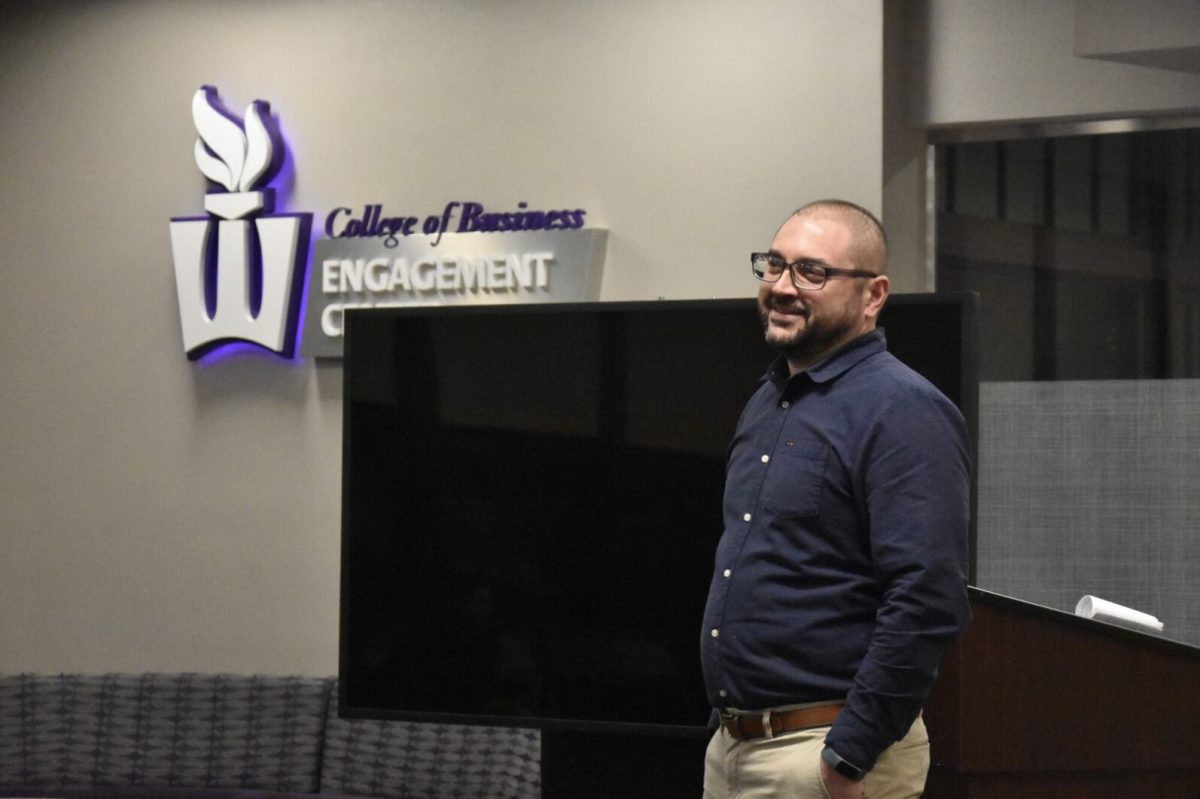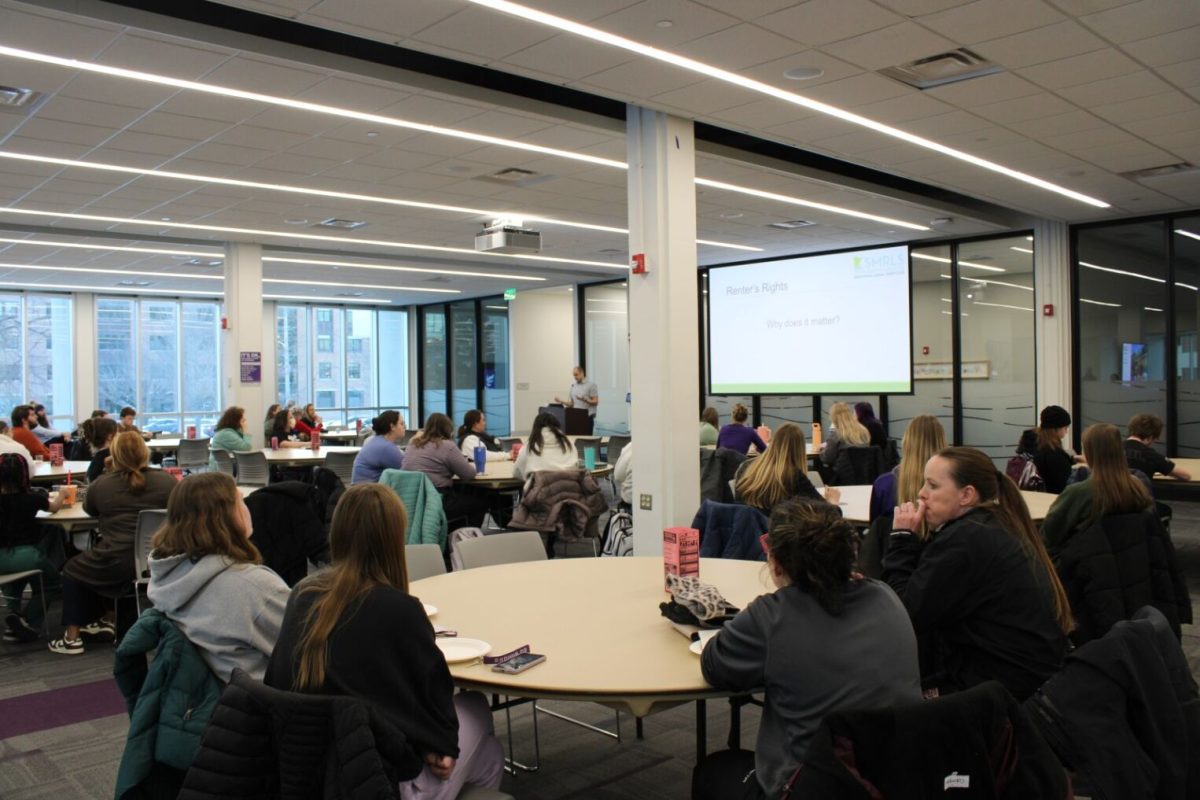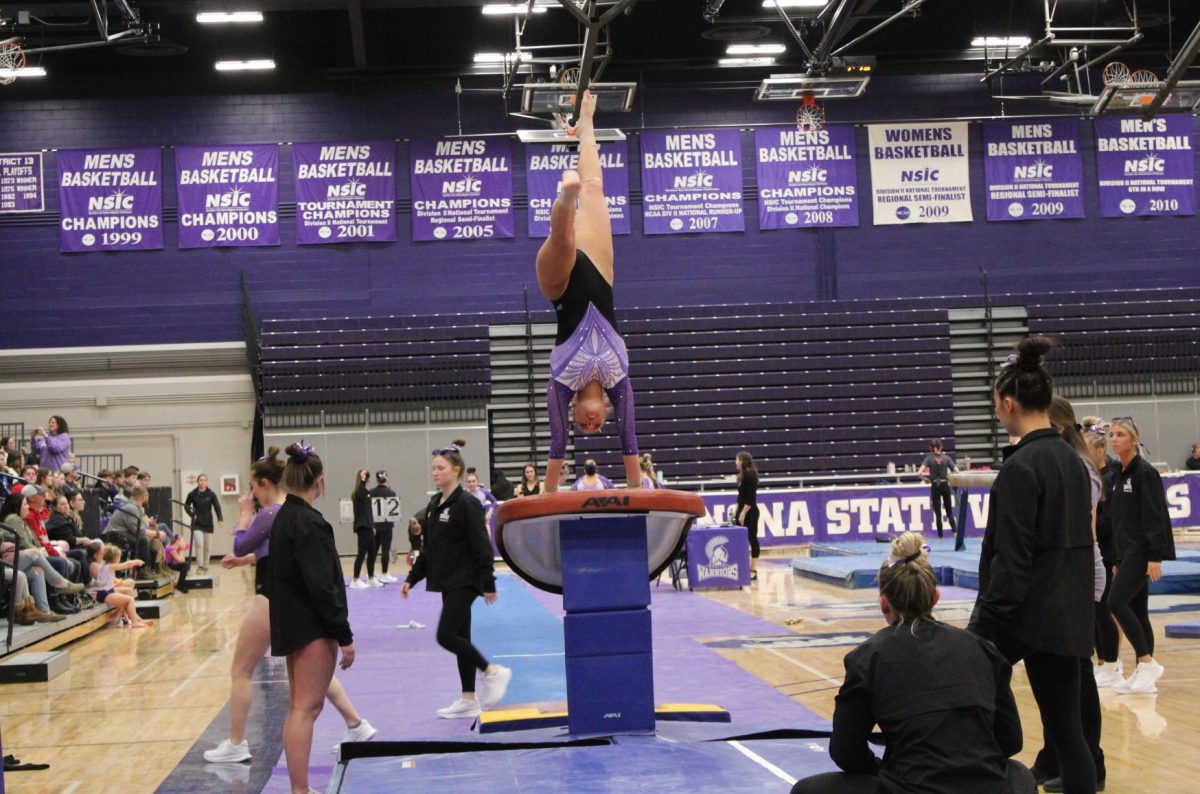Jordan Gerard/Winonan
Full-time students seem like they are the busiest students in college.
And it’s true; I should know, I’ve been a full-time student for the past three and a half years now. And yes, it’s a busy life.
Now only one semester away from graduating, piling on my courses the first three years has allowed me to be a part-time student with only two courses this semester.
What do I do with all that extra time?
Many might think I have all the free time in the world, but most of that is consumed by three jobs to pay the bills.
The bills are due in part to not being able to live on campus since I am a part-time student. No big deal, I found my place to live, though I do miss living on campus occasionally.
After moving into my off-campus apartment, a serious downgrade from East Lake Apartments, I got to thinking, “What else do part-time students give up?”
According to the Chartwells on the Winona State University website, students living off campus are only allowed to buy a 75-meal block plan, which totals about $499. And granted, it gets you into both cafeterias, the Smaug food court and eateries, but if students don’t use all of the meals, do they get the full benefit of eating on campus all semester?
Part-time students also receive less financial aid than full-time students, which makes sense, since tuition costs are less; but we do have other payments, such as loan and monthly rent payments.
And what about the work ethic of part-time students? Even with three jobs, I find myself studying hard, perhaps even more so than I did while full time.
So is there really a difference between full-time and part-time students?
Mass Communication Professor Cindy Killion does not think so.
“It doesn’t matter if they’re full or part time; I assume they’re there because they want to be there and learn,” Killion said. “My goal is provide them with what they’re in class for. If they’re in my class, I have expectations that they’re there to learn something and I’ll work with them to do that.”
English Professor Chris Buttram said she does not know if her students are full-time or part-time unless they tell her.
“Even then, I haven’t noticed a difference in work ethic,” Buttram said.
Former part-time student Alison Bettin agrees.
“I never felt there was a stereotype of part-time students,” Bettin said. “Many part-time students also work full-time and many have dependents and other responsibilities to attend to, so I would hope there would be no stigma attached to being part-time.”
Killion said she has noticed the pressures put on students, full or part time, can ultimately affect their school work.
“One of the more troubling things for me is students are having to work two jobs; so if you’re full time, your entire focus should be on education, but that doesn’t happen because an education is expensive,” Killion added. “They don’t get their sleep; I can tell in class, they’re drooping away, between studying and that. It’s really tough on students.”
Bettin said it’s other responsibilities that affect a student’s work ethic.
“We should never judge another’s workload because we may not be aware of the other responsibilities affecting their ability to go full time or part time,” Bettin said.
Personally, after an average 5-hour shift standing and repeating things like a robot, I’m ready to go home and pay no mind to homework.
I didn’t know I would only have two courses my last semester. Sometimes the choice to be full-time or part-time is not yours.
“It’s the situation they find themselves in. You may want to be full time, but you simply can’t do that for a lot of different reasons,” Killion said. “Full time allows you to get your degree faster; part time extends it out. Each student has to look at their individual situation and determine what’s going to benefit them.”
Bettin said she chose part time because it was her first time back to college after nearly 14 years.
“I was unsure of myself and my ability, so I chose to ease my way into the WSU environment,” Bettin said. “Additionally, many part-time students must work full time or have extensive responsibility off campus, such as children or parents who require much of their time. Balancing work and family are already challenging for many, but when you add college classwork it can be very difficult.”
So be it full time or part time, it most likely feels the same, minus a few benefits. Full-time students have more school responsibilities, while part-time students may sometimes have more job and family responsibilities.
“Get a degree,” Killion said. “That’s your ultimate goal.”
Now, if you’ll excuse, I must catch up on my poetry assignments.








































